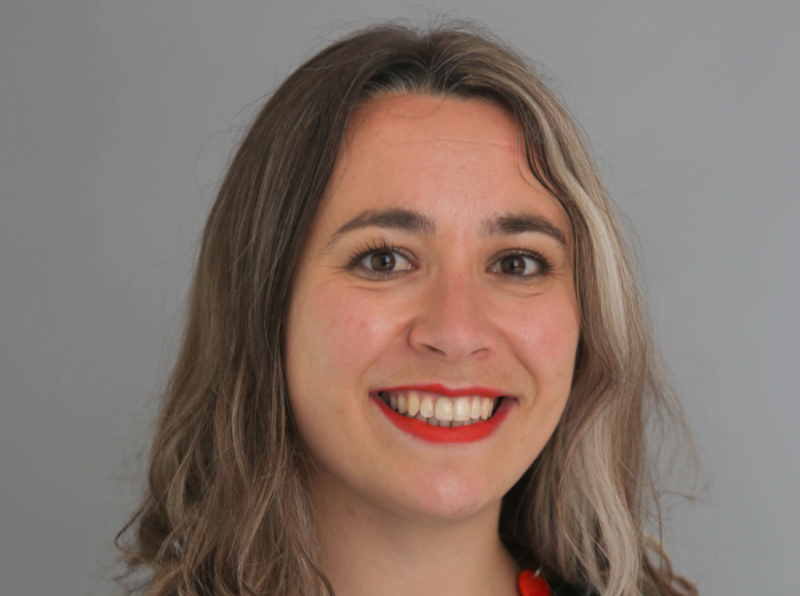Do you think what the DfE is proposing is going to be enough to shift the dial in terms of how much the sector can support sustainability and whether it will shift workforce attitudes about what we're doing for sustainability?
I think the fact that a year ago, we didn't have a sustainability team within the Department of Education and now we have one and that we have a strategy with commitments for the next eight years is incredibly positive. And it's happened very quickly. They've pulled together the strategy in a relatively short period of time off the back of COP 26. And they've gone through a lot of engagement to get the strategy launched. I think they've got a good group of people that are experienced and committed to education for sustainable development (ESD) to feed into the strategy development. There's a lot to celebrate and the foundations that it sets are solid.
In terms of workforce support, we were really pleased to contribute to the Occupational Standard that's referenced in the strategy when that was being developed by the trailblazer group last year, to ensure that it wasn't a missed opportunity for thinking about what kind of knowledge, skills and behaviours teachers need to integrate sustainability into their practice. That's a great sign because top-down frameworks such as these standards absolutely set the scene for how the sector operates. Embedding sustainability within initial teacher education is exactly right because 74 per cent of teachers told us that they haven't been adequately trained to bring sustainability into their teaching and learning practice. We've got around 90,000 educators who currently work in FE and training, the vast majority of whom haven't had that training.
We manage the Society for Education and Training (SET), and the professional standards have recently been revised to explicitly include ESD. It's about giving staff the time and the resources to really invest in training and to get comfortable with what is quite a complex issue; not just the core concepts of sustainability, but how you contextualise that for your specific role, and how you contribute positively through your role. I think there's a gap in how educators can access that kind of CPD because there isn't funding and time for them to do so. There isn’t anything specific within the strategy about providing current educators with these opportunities. although there's a commitment within the strategy for Department for Education (DfE) to bring sustainability into their commissioned continuous professional development (CPD) in future.
A big elephant in the room is curriculum. The Natural History GCSE is a great thing to offer but in terms of scale and how many learners that will reach, we're still missing the mechanisms to deliver what the strategy says, which is that all jobs will be touched by sustainability.
Everybody needs to know about these issues and how they contribute but this doesn't yet translate into qualifications – I don’t mean new sustainability qualifications, but relevant, current sustainability content woven across all qualifications. Teachers tell us the number one barrier to them bringing more sustainability into their teaching and learning is curriculum specifications. Our research shows that fewer than one in 200 learners are studying a course in FE that has explicit sustainability content. So that is a big driver of change and a big barrier that people are struggling with that isn't really in this iteration of the strategy.
One thing I was really interested in was the DfE said they’re going to annually review progress and what else needs to happen. So, it's not that this is it now for eight years. There’s a desire for iterative improvements and a learning mentality which is really welcome – test and learn and building knowledge is critical, at pace of course.
Everybody needs to know about these issues and how they contribute but this doesn't yet translate into qualifications
The strategy sends clear signals that education has a clear role in achieving our climate change goals. I think it lays a solid foundation, but there are some gaps, particularly for the training sector because although colleges are referenced throughout, there's been very little recognition of the broader role that training providers, adult education services, and other provider types can play. There are some gaps for the FE sector and some more broadly. But I'm delighted that we have what I think is a big step forward.
What has the ETF got planned in this area for the coming year?
We started last year, as it was the first time we had dedicated resource for ESD, with an insights and research piece to make sure we had a good baseline and to make sure that our work was really sector informed. We're about to launch a new Sustainability in the Curriculum suite of resources that will help educators and curriculum leads look at their ESD teaching learning practice and where that could be improved.
The next step for us is a CPD course for educators, helping people develop that mastery of how to integrate ESD into teaching and learning practice.
That sits alongside a bigger job of looking at the breadth of ETF's and SET's work, how we can embed sustainability throughout our broader offer so everyone gets relevant ESD content, not just those who sign up for an explicit ESD course. Instead, if you come on a leadership and governance course, or a technical education course, or an initial teacher education course, then you have that ESD content woven throughout, in a way that is relevant to that role.
And those resources will be available to all types of providers?
Absolutely. We're really keen to make sure that our work is accessible and inclusive to different individuals and different variety types in FE.



